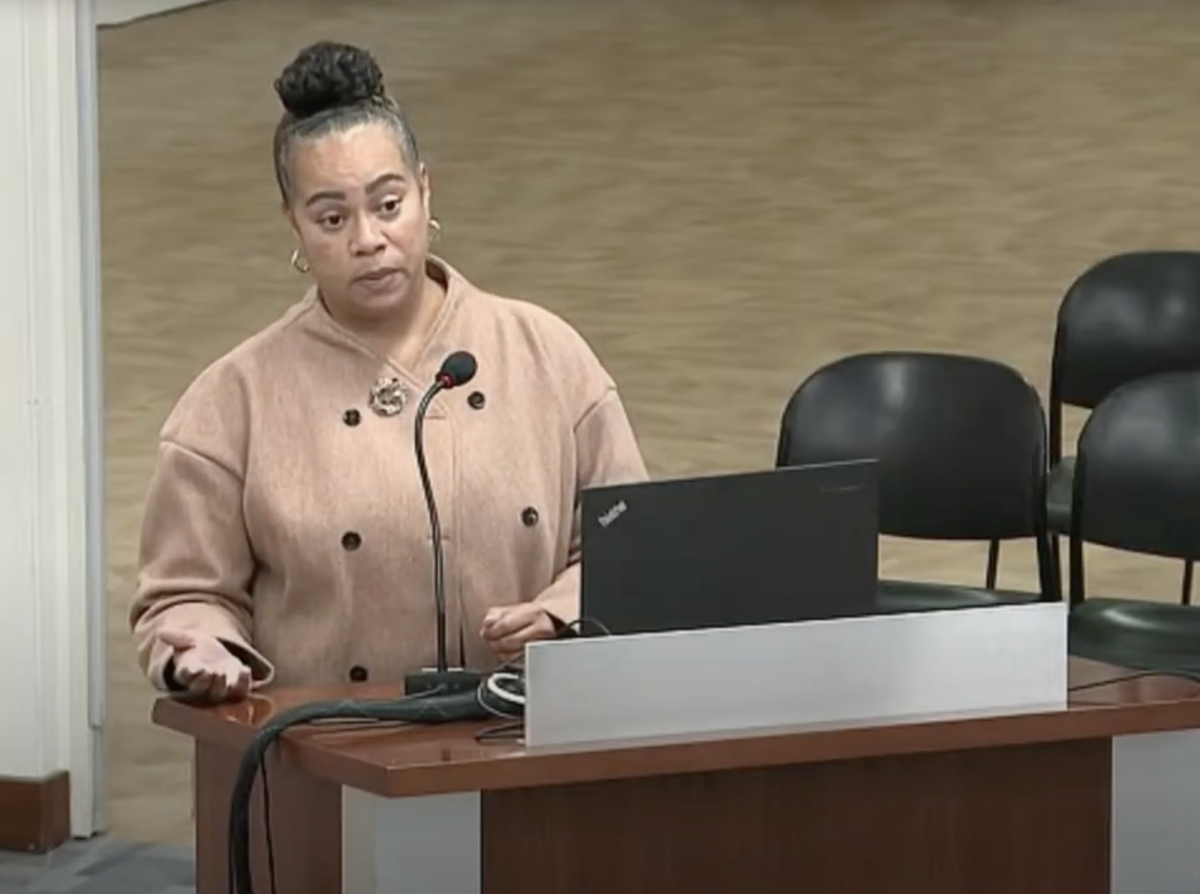Reallocation of funds criticized at Peralta trustees meeting
By Alice Feller
While everyone agrees that part-time faculty should have paid office hours, the chancellor’s scheme to pay for them out of student equity funds is causing outrage.
Faculty and students lined up at the Peralta Board of Trustees meeting May 9 to protest the chancellor’s plan.

Laney faculty member Kimberly King expressed dismay. “All faculty need office hours,” she said. “Hello, that should be a no-brainer!”
She went on to point out that part-time faculty make up 70 percent of the faculty. But student equity funds are supposed to target only disproportionately impacted students.
Terra Neff, a Laney student who has been homeless for almost two years, is just the kind of student meant to benefit from equity funds. Because of vouchers from the equity program, she told the board, she was able to eat and catch BART while she studied at Laney.
“Now I’m a straight A student,” she said to raucous applause, adding that she plans to be a math professor at Laney College.
This was greeted by whistles and cheers from the audience.
“If you cut these programs, I couldn’t go to school at all.”
Jabari Shaw, Laney College student
Chris Weidenbach, English Department co-chair at Laney, reminded the board that he was also a taxpayer. “We’re watching how these monies are being spent,” he said. “We’re not liking what we see.”
His statement was the most pointed reference of the evening to the recent Measure B audit and the question of whether Measure B funds were misspent.
“When people approve certain measures,” Weidenbach said, “and then that money gets used for other purposes it’s an enormous problem. Using the equity fund for part-time office hours is a very small example of this but it’s an important one.”
Jabari Shaw spoke on a related issue. He introduced himself as a returning student who came to Laney from prison, adding, “If you cut these programs I couldn’t go to school at all.”
He likened the misuse of equity funds to the policy of giving priority to out-of-state students at the expense of students like him.
“We’ve been trying to get members of the community to come here rather than students from other countries,” he added.
Shaw’s point was echoed by Machine Technology Instructor Peter Brown, the Career and Technical Education representative.
Chancellor Laguerre did not say how he would define success, or who would be the judge of such success.
—
“Recruiting students from out of state who pay very large fees and giving them preferential treatment is pay to play. That’s not public education, that’s corporate education,” he said.
Chancellor Jowel Laguerre argued that the use of equity money “would not be willy-nilly. There is no plan to cut any program that is successful in helping students.” Laguerre did not say how he would define success in this case, or who would be the judge of such success.
The final public speaker on this issue was Rick Greenspan, chief Peralta Federation of Teachers negotiator.
He announced that the contract faculty members are taking a slight pay cut to give more money to the part-time faculty.
“This would be the equivalent of the chancellor coming to you and taking a pay cut so that more money could go to other things in the district.”
Greenspan revealed that he had located the funds to pay for the part-time faculty’s office hours.
“The amount needed is $500,000,” he said, “which just happens to be the amount we’ll be saving because we’ll no longer have the three vice chancellors of education — only one.”
Alice Feller is a Tower Staff Writer. Contact her at alicefeller967(at)gmail.com.

























